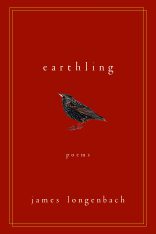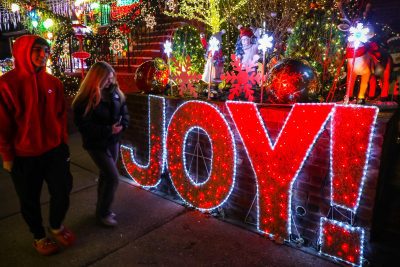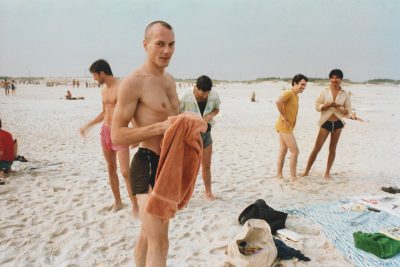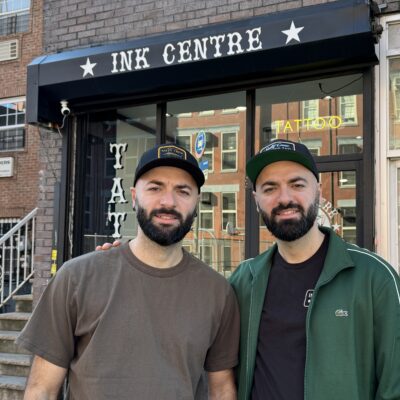Interview with 2018 NBCC Poetry Award Finalist James Longenbach
For the past four years, the National Book Critics Circle has partnered with The New School’s MFA Creative Writing program, allowing the students to interview each of the NBCC Awards Finalists. In addition to building excitement for the Awards Finalist Reading and Ceremony held at the New School March 14th-15th, these interviews have built an intergenerational bridge between the writers of today and tomorrow.
This year, as part of the ongoing collaboration, and in support of the NBCC’s conversation about reading, criticism, and literature that extends from the local to the national, Brooklyn Magazine will publish and promote the interviews between NBCC Finalists and the current students of The New School.

There are moments when insufferable existential questions transmute into the mundane. Feelings we have never had answers for become best explained in waiting and solitary. In James Longenbach’s most recent poetry collection Earthling (W.W. Norton), he marks the existential and human inclination to wonder with music, and ruminations on aloneness. This collection explores the body’s relationship with its own consciousness. Longenbach builds worlds which later crumble under new imaginative pursuits. He thinks about his mother’s passing and his own mortality. Earthling is told by an endless cacophony aware of its limits—realizing “you’re ruled by your body, condemned / Each day to fill it so that tomorrow / You may fill it again”?
James Longenbach is the author of four earlier collections of poetry, and many works of literary criticism. I had the honor to speak with him about this National Book Critics Circle nominated work Earthling.
To jump in, we start with the title Earthling. What made you center the collection around that word?
All my life I thought the word earthling was created in 1950s sci-fi culture. It’s actually a really, really old word in the English language. Earthling was our first word for ploughman or somebody who works with soil. I just thought that was so beautiful. I did want there to be the ghost of the sci-fi meaning present as well. I tried to use the word to evoke this primal sense; like the first being on Earth looking around and seeing what’s happening. All those connotations really appeal to me.
There are points in the collection where the speaker seems to be one earthling, but at times there is a choral voice. Can you talk a bit about your speaker or speakers, if it does vary at points?
For whatever reason, good or bad, I don’t really think about the speaker that much. I’m just trying to create this verbal utterance and if there is this metaphorical sense of a speaker, it just kind of happens. But [a speaker] is not something I am actively trying to create. Though it has to happen. Some of the poems are spoken out of intense isolation, and some of them seem to be spoken out of the place of something more communal. It does vary, as you say.
What makes me want to get a better sense of the speaker(s) is the kind of questions asked throughout the collection. For example, in “The Crocodile” we see: “What manner of thing is your crocodile?” Then later in “Earthling,” the title poem, we get the question “Do we have to eat now?” I’m wondering what other questions does your speaker or do you have that did not make the book?
Whenever I found that I could use questions in the book that was exciting. I hadn’t used questions much in poems before. I found that very liberating. A different way to move the poem forward. So on a level of syntax I liked it. I suppose the questions that didn’t get into the book might be answered in the poems I am writing now.
A style you have utilized in this collection is the long poem. When you go into writing, are you thinking about length when you sit to write? Or is the length something that comes about in the excavation of the thing you’re exploring?
It comes about in the excavation of the thing I’m exploring. Very rarely have I written something with the design for it to be a long poem, but I discover that it needs to be that. Usually it happens when I am trying to figure out a way to end the poem and I can’t. There’s a pleasure problem. So when I feel this necessary open-endedness at the end of what I’ve got so far, that suggests, “mmm there’s something that needs to follow this.” Often I don’t know what it is yet, so I wait around. Then at some point, I get a sense, “Ahhh, I’m writing sequence here.” It happens along the way just as you’re suggesting.
It’s intriguing to hear you talk about waiting in your process because, in the collection, there are moments when a line would come to an end, but there would be a harrowing silence behind the line and the end of the break. In this shifting landscape you have throughout, were you thinking about silence? Were you trying to utilize silence to create mood or tone?
I must admit that I wasn’t thinking about that, but the way you have described to me, this “harrowing silence” beyond or behind the lines is rivetingly cool to me! It makes sense to me. It is a quality that I covet in great poems that I read and love—that sense that there is a plentitude of implication or innuendo beyond the words. I am thinking of a line in Marvell’s “The Garden” where he says, “a green thought in a green shade.” A third-grader could understand the line, it’s not difficult but the power of that, the way you can feel it rippling out, it’s really powerful.
Can we talk about your process of putting the collection together? What were the poems you started with, and how did you go about making Earthling a cohesive collection?
The first poem I wrote was the poem I ended up putting last, called “Pastoral.” Then the second poem I wrote was “By The Same Author,” which really amused me to be able to use that title. In my experience, I write one poem. Then I have two poems and then I immediately start examining the poems and seeing what they say to each other. I put them on the desk and rearrange them, and even in that early stage I am looking to see if the poems can lead me to writing other poems. I didn’t have any coherence of what the book would be, but I’m looking for that coherence to see what the work is suggesting back to me. Or what I doing that I am not yet aware of.
Some of the themes I spotted in Earthling were: the fallibility of time, mysticism, space, mortality, travel. When poets take on these inevitably large topics and explore them in such a way I am always curious about the takeaways at the end. In your interrogation of mortality, did you find any new ways to think or approach the subject?
Each of the four sections of the book are another way to take on ephemerality or mortality. In retrospect, I still don’t know what it meant for me, myself, to be mortal. What the book more or less makes clear is that I faced a very serious health-crisis. It made me realize, for all of this thinking and feeling I have done over the years, I still thought I would live forever. To face that mortality was very difficult. I don’t know if it was that thinking, in part, which produced the poems for the book, or if the poems produced the thinking. [What I do know]: the poems and the thinking were bound together.
I get a sense, in reading, that mysticism is being used as a way to out-do mortality. Can you talk about the collections’ relationship to mysticism and if you are attempting to conjure this mystic-air around your subjects and poems?
When you say mysticism are you talking about this quality of beyondness?
Of beyondness but also of this ability to transform. When I look at a poem like “The Crocodile” or even “By The Same Author” and there is the line “We are the dogs.” There is a lot of transformation throughout.
I see exactly what you mean. I guess to myself I never thought of that as mysticism. I have always tended in my life to be, or to imagine myself as, not a terribly spiritual person. But I suppose I have discovered, through these poems, that I am in some ways spiritual. I think you are being very canny about this to recognize that impulse, fascination, and desire to be something other than what you are. Maybe it is fundamental to the act of writing a poem. That it is not just getting what you are or what you think on the page, but it is also an embodiment of this wish to be other than yourself. Because the poem is other than yourself.
You might also like 


























